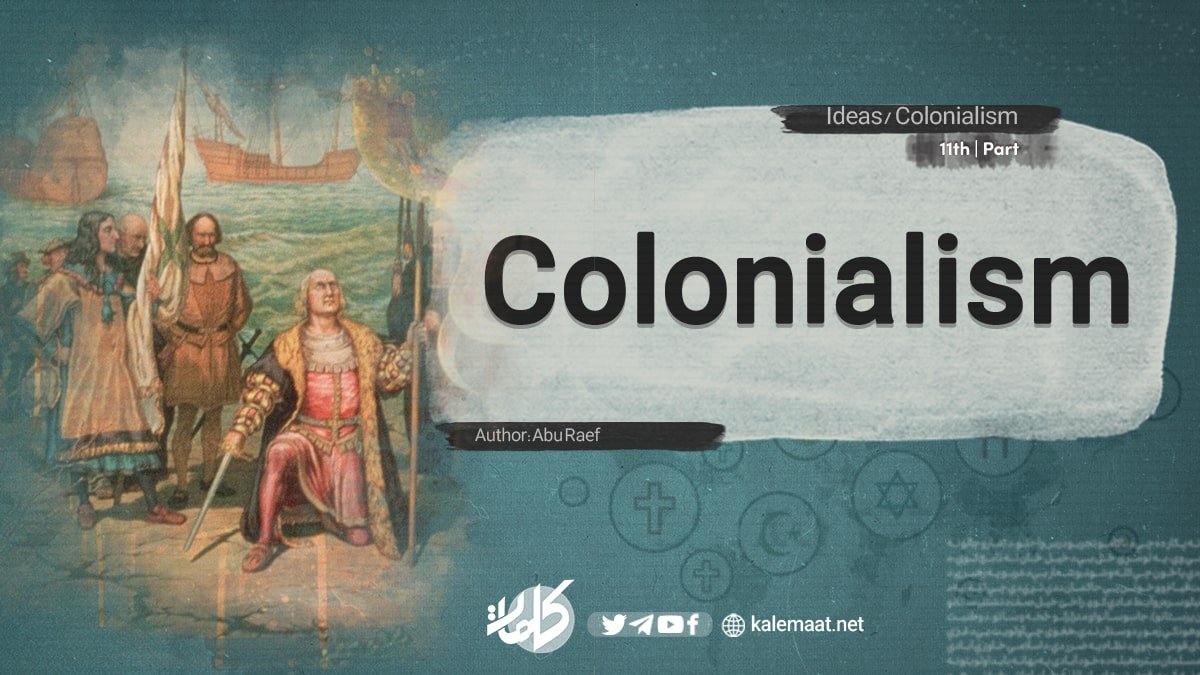Author: Abu Raef
Colonialism (11th part)
Soviet Invasion of Afghanistan
After the unsuccessful experiences of the British in the campaign and invasion of Afghanistan and their successive failures, no other country considered such an action possible for themselves, and they practically stopped invading and occupying Afghanistan. However, the former Soviet Union, aiming to open the country and expand its power over weaker countries, initiated a military campaign in Afghanistan in 1979. They attacked and occupied Afghanistan with more than 118,000 troops and various modern war tools.
At the start, there was some resistance from the Afghan people and Mujahideen, but they were ultimately defeated, and the Russians gained control over Afghanistan.
The goals and reasons behind the Soviet Union’s campaign in Afghanistan:
The Soviet Union had numerous goals and reasons for attacking and invading Afghanistan, driven by certain visions and objectives. The most important goals included:
1. Fighting against England’s expansionism in the 19th century:
During the 19th century, England, a strong colonial power, had colonized India. The Russians targeted Afghanistan to combat this expansionism and deter further British aggression and expansion.
2. Preventing the growth of Islamism in Central Asia:
Afghanistan shared a border with countries within the former Soviet Union, such as Tajikistan, Uzbekistan, and Turkmenistan, which had close religious, cultural, and racial ties with Afghanistan. There was a fear that the rise of Islamism in these areas would contradict communist ideology.
3. Access to warm water:
The Soviet Union aimed to gain access to the Indian Ocean and expand its reach to other parts of the world.
4. Preventing American domination:
Throughout the 19th and 20th centuries, the United States was Russia’s primary rival in occupying countries. The Soviet Union sought to limit and reduce America’s influence and dominance, particularly at a time when Pakistan and Iran were under direct American control.
The initial phase of the invasion:
Cargo planes transporting soldiers and military equipment initially entered Kabul airport to transfer troops and equipment. This transfer took place under a formal agreement with Hafizullah Amin, the then-president of Afghanistan, which prevented Afghan soldiers at the airfield from reacting or confronting the situation.
Soviet soldiers subsequently entered Afghanistan and seized Kabul within two days. In the primary operation, Hafizullah Amin was killed at his residence on Taj Beg Hill, and Babrak Karmel, leader of the “flag” faction, assumed power.
While many in Kabul were unaware of Mr. Amin’s death, the restless atmosphere and unusual tank patrols raised suspicions among the people. That evening, Radio Tajikistan, connected to Kabul’s frequency, broadcast Babrak Carmel’s voice, confirming the country’s occupation. The following day, Kabul was transformed, with an atmosphere of mourning and a presence of tanks and Soviet soldiers lining the roads, alleys, and streets.
The overconfidence of the Russians in their military power and the belief that they could swiftly suppress resistance soon proved to be an illusion, as the Afghan people’s jihadist movements intensified, making it challenging for the aggressors to maintain control.
Aggressors often attempt to normalize the situation following an occupation, aiming to divert attention from atrocities and portray a positive image to the public. The Russians and their proxies adopted similar tactics.
Babrak Karmel, an experienced politician, tried to implement long-term plans, including releasing prisoners and returning confiscated property to the people. He also planned for regional autonomy and established organizations like “Islamic Organizations” and the “Ministry of Ethnicities and Tribes.” However, due to the escalation of war into a nationwide conflict, these measures were not successful.



